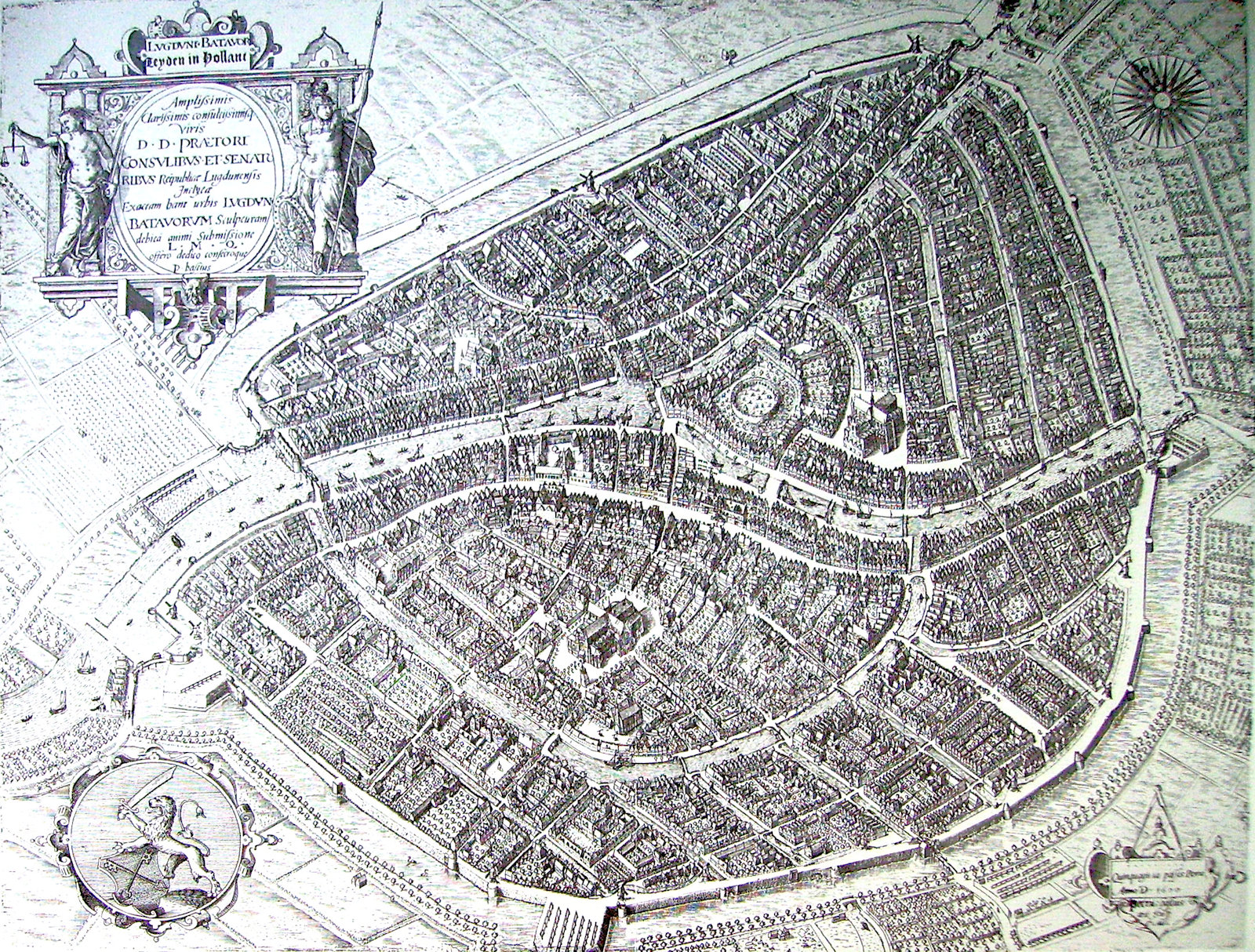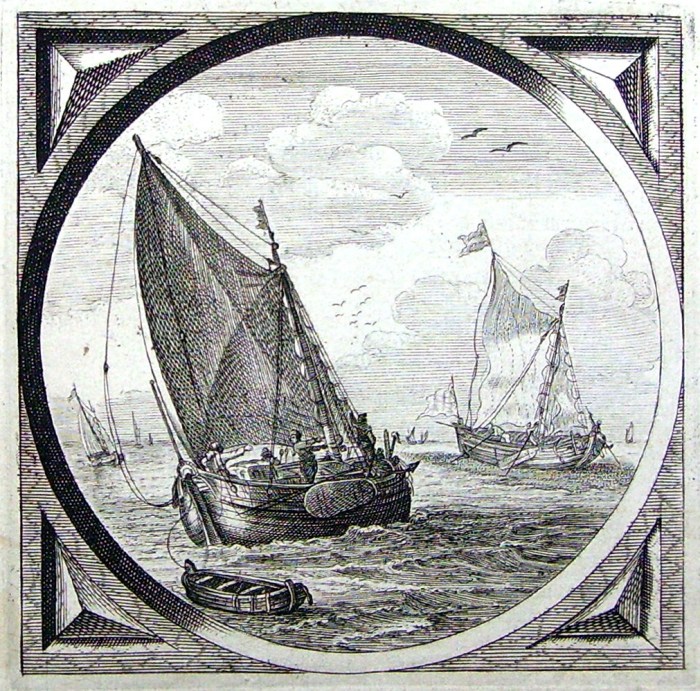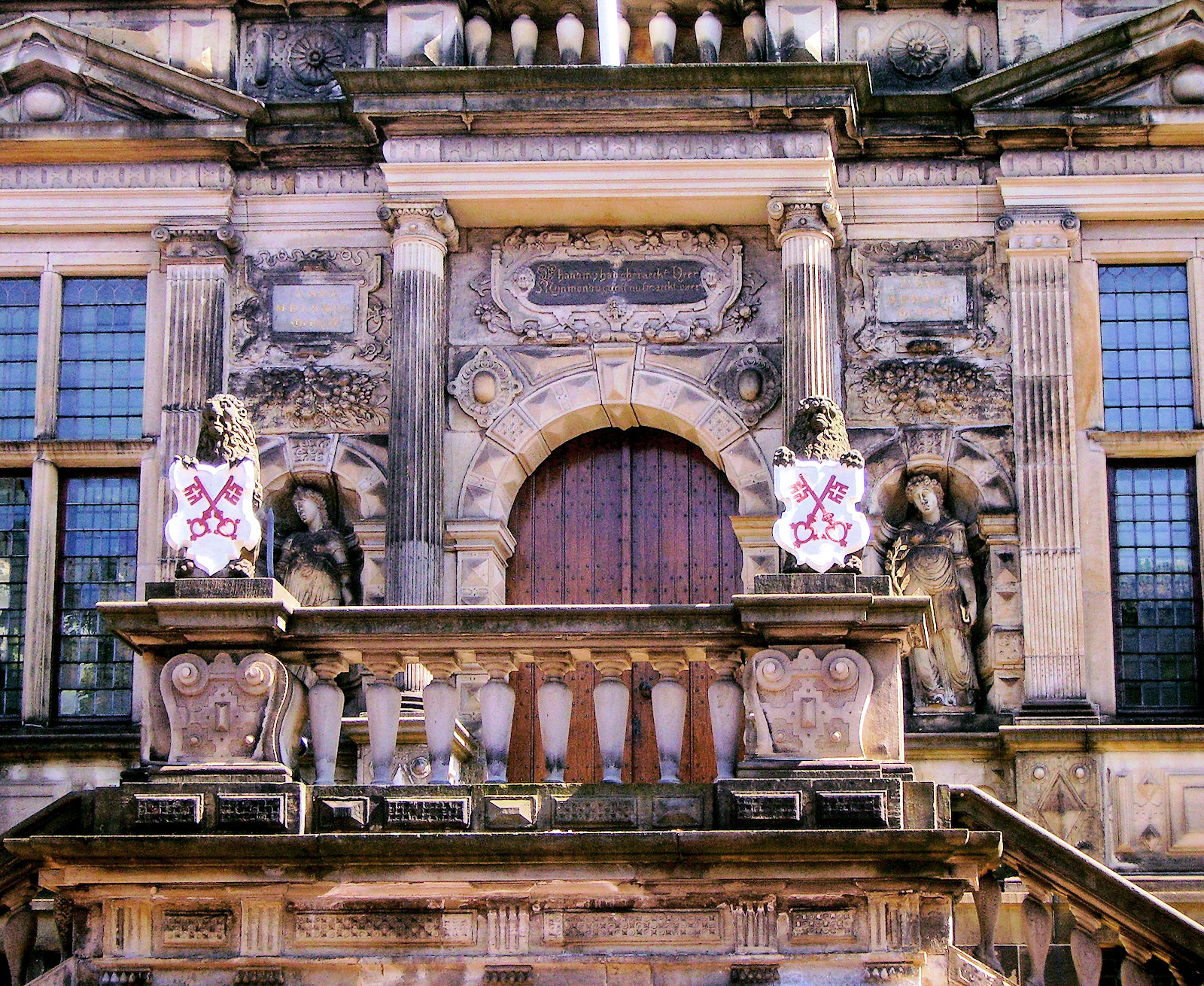
Amsterdam, when the Pilgrims arrived in 1608, was already home to other Separatist groups, in addition to the non-Separatist Puritan congregation meeting in the Begijnhof Chapel, which still holds services. Rev. John Smyth of Gainsborough near Scrooby had led his Separatist congregation to Amsterdam as part of the same escape with his acquaintances from Scrooby. Smyth's congregation, as well as the Pilgrims under Rev. Richard Clyftom and Rev. John Robinson, may have taken communion with the "Ancient Brethren" as the Amsterdam congregation led by their friend Rev. Francis Johnson was called. Shortly after the Pilgrims arrived, controversies split the Amsterdam congregation. John Smyth re-baptized himself and then all others who wanted to form a distinct Separatist congregation in Amsterdam with him. Out of this group Rev. Thomas Helwys eventually returned to England to found the first English Baptist Church. The remnant sought contact with Dutch Mennonites.

During this split in the Ancient Brethren, Robinson and Brewster led the Pilgrims (about a third of the Amsterdam Separatists) to Leiden, a move which their pastor from Scrooby, Clyfton, did not make with them. Robinson thus became the pastor of the Pilgrims. The move to Leiden was carefully prepared. Robinson and about one hundred other Pilgrims requested permission to reside in Leiden, in a document dated February 12, 1609. The city's permission included the statement, now famous, that Leiden "refuses no honest people free entry to come live in the city, as long as they behave honestly and obey all the laws and ordinances, and under those conditions the applicants' arrival here would be pleasing and welcome." Putting inaction to fine words, the city refused to denounce the Pilgrims when the British ambassador requested information about them because they were rumored to be banished Brownists. Town officials let it be known that the city had heard nothing of their being either banished or Brownists, but rather that they were honest people of the Reformed religion - and would His Excellency please excuse them to the King in this matter.
The move to Leiden, Holland's second largest city, was a move away from impending scandal, for soon one of the Elders (leading laymen) of the Ancient Brethren was to be charged with adultery and pursuing extraneous interests while leading the Sunday School. Ainsworth and Robinson believed that such charges should be handled by the entire congregation, following the injunction in Matt. 18:17 - "tell it unto the Church." Johnson, on the other hand, defined the "Church" in that text as meaning only the pastor and elders (the accused Elder was his good friend). Robinson and Brewster hereby became further convinced of the value of a democratically governed congregation living separated from the world in ethical purity. They hoped for peace in Leiden, famous for its industries and its Calvinist university. Immigrants did not have to request permission to come live in Leiden, so the question arises why the Pilgrims did so. With official permission to reside in the city, the Pilgrims ensured that, if necessary, their children could fall under the care of Leiden's orphanage and not be sent back to their parents' place of origin, as was customary for immigrants' orphans. Evidently in 1609 the Pilgrims were planning to stay in Leiden for a long time.

They lived peacefully and unobtrusively, forming about one fourth of the English community in a city where nearly a third of the population of about 40,000 were refugees, most from Belgium. An English Puritan congregation had existed in Leiden since 1607, although without its own minister. The Dutch Reformed minister Jonas Volmaer preached to them in English, as perhaps did Professor Franciscus Gomarus and the Walloon minister Rev. Daniel Colonius, whose English was praised in the Leiden magistrates' favorable answer to the congregation's request for a place to meet. Like the Walloon (French-speaking) Reformed and the German Reformed, the English Reformed (Puritan) congregation was understood as a part of the Reformed Church, differing only in language from the Dutch Reformed. When they saw they could not agree with the doctrines preached publicly by the Pilgrims, the Puritan congregation petitioned successfully in September 1609 to have their own minister, whose salary would be paid by the city. Rev. Robert Dury became their pastor.
The Pilgrim’s rich and exciting story deserves to be told in detail. You can discover different aspects of it in the following chapters.